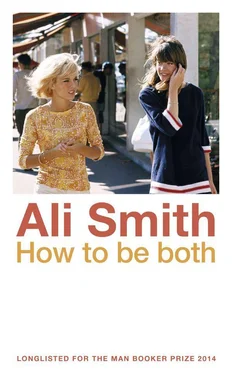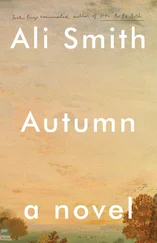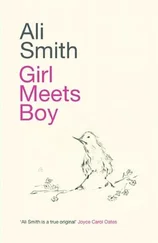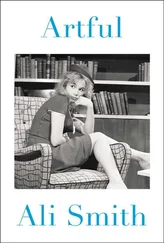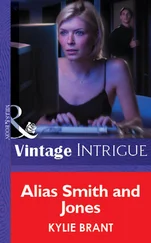She’d started doing this a couple of years ago. Every day she put up with everybody laughing at her doing her moves among the furniture, her headphones bigger than her ears.
Every single day, George has decided, from its first day onwards for this first year in which her mother won’t be alive, she will not just wear something black somewhere on her person but she will do the sixties dance for her in her honour. This is only problematic in that George will have to listen to songs while she does it, and that listening to songs is one of the things she can no longer do without inducing a kind of sadness that actually hurts in the chest.
George’s mother’s phone is one of the things that went missing in the panic and aftermath. It hasn’t turned up, though the house is still full of all her other things exactly where she left them. She will have had her phone with her. It went missing between the railway station and the hospital. Its number has been stopped, presumably by her father. If you ring it now the message you get is the recorded voice telling you this number is currently not in use.
George thinks her mother’s phone has probably been taken by someone working in surveillance.
George’s father: George, I told you. I don’t want to hear any more of that paranoid nonsense from you.
Mrs Rock: So you believe your mother’s phone was taken by someone working in surveillance?
All her mother’s playlists were on her phone. Her mother was unusually private about her phone. George only sneaked a look at it once or twice (and both times felt bad for doing so, for different reasons). She never even looked at the playlists. She only looked at a couple of emails and texts. She never thought to look at music. It was her mother’s music. It was bound to have been rubbish. Now she has no idea and will never know what song or songs her mother listened to every day to do the dance thing, or on the train, or walking along the street.
But the dance her mother did was always that old sixties dance, for which there are instructions online and even several specific songs.
There is a piece of Super 8 footage her mother had transferred, of herself as a very small child in about 1965 doing this dance with her own mother, George’s grandmother. George has it on her laptop and her phone.
It is a grandmother who was dead way before George, though George has seen old photographs. She looks like someone from another time. Well, she is. She is a very young woman, strict-looking but pretty, a stranger with dark hair up on top of her head. The film footage is all flickers and shadows at the top edge of it, which is where the grandmother’s face tends to be because the film is really being taken of George’s mother, who is much much smaller in it than Henry is now. She must be only about three years old. She is wearing a cardigan knitted in pink wool. It is the most colourful thing in the film. George can even see the detail, if she stops the frame, of the toggle buttons on its front, they’re black, and behind this child who is her mother there is a television screen on spindly slanted legs, the kind from when television screens bulged like the midriffs of obese middle-aged people.
George’s mother, next to the stockinged legs of her own mother, is twisting from side to side in the silence, her little arms all elbow. She looks serious and grim but she is also smiling; even then her mouth, when she smiled, was that straight line and it looks like she is already, even so young, being polite yet firm about the fact that she’s having to concentrate. In the film she is really having to concentrate because she is so small and the cardigan is so chunky, so much bigger and thicker than she is that she looks like a small pink snowperson, like she is bound to topple over. The whole thing somehow becomes about the fact that she is balancing her self in all its wholeness, compactness and littleness against something that looks like it’s going to happen and which, if it does happen, will end the dance. But it never does happen because just before the film turns into being about some swans and rowing boats on a boating pond somewhere in Scotland the dance ends, her mother (as a child) puts her arms up in the air delighted and the lady with the hair up (George’s grandmother) puts her arms down, catches the child and lifts her up into the flicker and out of the frame.
The dance part lasts 48 seconds on George’s laptop.
Lockjaw. Quicksand. Polio. Lung. These are some of the words that George’s mother was frightened of when she was small. (George once asked.)
Tell Laura I Love Her. That’s one of the records that her mother loved when she was small. One Little Robin In A Cherry Tree. To listen to these, with first their crackling needle noise then the starburst of their hokey tunes, is like being able to experience the past like you have literally entered it and it is a whole other place, completely new to you, where people really did sing songs like this, a past so alien it is like a kind of shock.
Shock of the new and the old both at once, her mother says.
Said.
One afternoon George’s father brings home the new turntable and when he finally works out how to connect it up with the CD soundbox they drag the old records out from under the stairs.
A boy called Tommy loves a girl called Laura. He wants to give her ‘everything’ (this is funny in itself, apparently, from the way her parents fall about, though this is back when George is too young to understand why), including flowers and presents and — the thing he wants to give her most — a wedding ring. But he can’t afford one, so he signs up for a stock-car race because there is a prize of 1000 dollars (idiot, George says, yes, I’m afraid so, her mother says, romantic, her father says, and Henry is too little right then to say anything). Tommy phones Laura’s house. But Laura’s not there. So he tells her mother instead to Tell Laura he Loves Her, tell Laura he needs her, tell Laura he won’t be late, he’s got something to do that can’t wait (uh-oh, her mother says, it’s already tragic because at one remove. Is it? George says. What does one remove mean? Romantic, her father says. That’s all technology ever does in the end, her mother says. It can’t do anything but highlight the metaphysical. What’s metaphysical? George says. Too big a word for this song, her father says). Then the car he’s in bursts into flames and as they pull him dying from the twisted remains of it he tells them to tell Laura he loves her and not to cry because his love for her will never die.
She and her mother and father all crying with laughter on the rug.
Why did you even keep this record? George asks her mother. It’s so bad.
I didn’t know till today but obviously I was keeping it precisely so that you, me and your father would all end up listening to it today, her mother says and they all fall about laughing again.
Thinking about that today back then in this new today right now, and in whichever stage of mourning she’s in, doesn’t make George feel sad or feel anything in particular.
But in case the record might do for the dance thing she went downstairs just before New Year happened, but after her father’d gone out so he wouldn’t be hurt by hearing it, and found it in the pile of smaller records by the turntable (there’s a name for the smaller-sized records but she can’t remember what it is).
She turned the sound to very low. She put it on. It had a warp in it so the guitars in its intro sounded seasick, like the record felt sick, though George herself felt fine, or rather, nothing.
It was definitely not suitable though, being too slow.
The dance her mother did every day needs an upward beat.
At midnight on all the other New Years her mother would usually get out some really nice paper, the kind with real bits of flower petal mixed in with its texture, and give her and her father two pieces each. They would each (except Henry, asleep, which was important, fire being involved) write their wishes and hopes for the new year on to one of them and write the things they’d hated most about the old year on to the other one. Then — being very very careful not to mix the pieces up — each person would take a turn standing over the sink, strike a match, hold the flame to a corner of the piece of paper with all the things written on it that he or she hadn’t liked, and watch it burn. Then when you couldn’t hold it any more without hurting yourself you could drop it safely into the sink (this letting-go of it was the whole point of the ritual, her mother always said) where, when it finished burning, you could wash the burnt-up bits away.
Читать дальше
